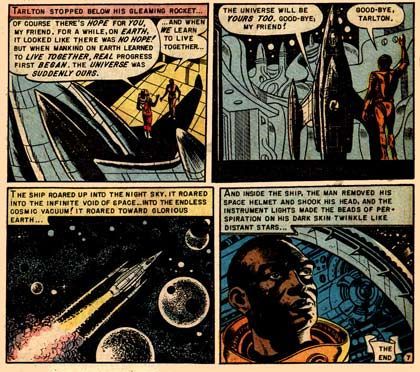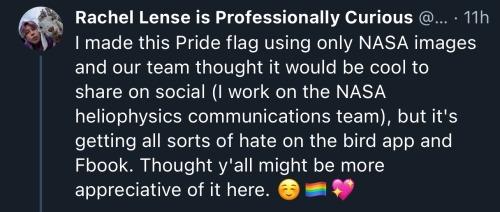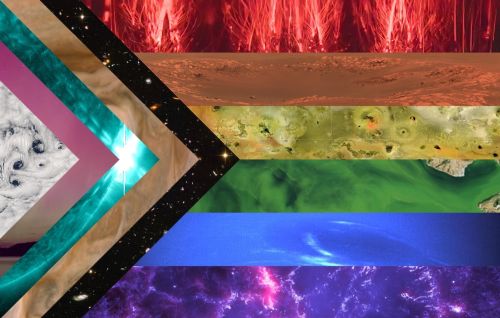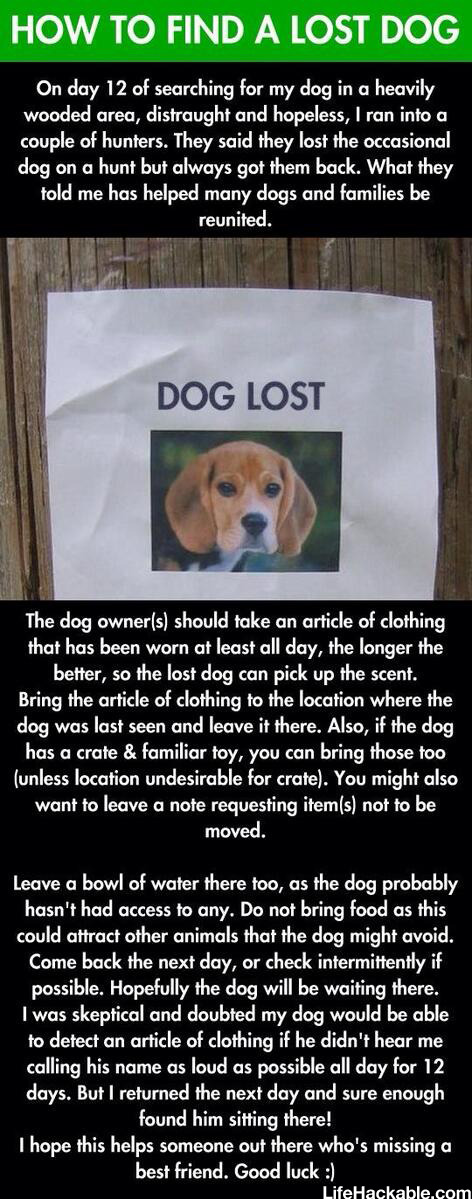I Love How Literally Every Version Of The Princess Could Be Interpreted As A Piece Of The Shifting Mound
I love how literally every version of the Princess could be interpreted as a piece of the Shifting Mound and, no matter how weird our relationship with her gets, it’s still applicable to our relationship with her as a whole.
Smitten and Damsel show how the Long Quiet and the Shifting Mound are star crossed lovers.
Skeptic and Prisoner reflect their inability to escape without working together. They are both Prisoners, even if only one is wearing a shackle.
Hunted and Beast present them both as archaic forces of nature that must change and adapt. As death, Beast is an offensive predator, and as life, Hunted is defensive prey.
Stubborn and Adversary demonstrate that the two gods are true equals in every sense, and that death means nothing to them in the end as long as they have each other.
Cheated and Razor show how conflict is in their nature, and that no matter how much violence the Shifting Mound dishes out, the Long Quiet is always strong enough to stand against her.
Broken and Tower show the contrast of Shifty’s embrace of her godhood vs the internal conflict of the Long Quiet, as well as the desire to embrace her for everything she is regardless of her flaws. Perhaps, in a twisted way, Broken shows an embrace of our godhood as a whole…
Cold and Spectre demonstrate the dynamic set by the Construct: a killer and his victim, as well as showing the true power of the Long Quiet, and showing that, underneath the struggle and conflict, LQ could end this all disturbingly quickly if convinced to.
Paranoid and Nightmare show the fear that infects the dynamic of the two gods, like Paranoid’s fear of the Nightmare and the Nightmare’s fear of sharing her heart, along with the desire to know the other but the inability to do so organically.
Opportunist and Witch, like Stubborn and Adversary, show the equality of their relationship, but rather than one built out of mutual respect, its mutual animosity fostered by the artificial tension of the construct. It’s the opposite of Skeptic and Prisoner, as, rather than realizing they can escape together through mutual trust, they both try to win against the other when it’s not a winning game.
Contrarian and Stranger show the inherent contradictions in the Gods’ natures; like Shifty says, aspects of who they are contradict themselves, and nothing can exist without contrast and change.
More Posts from Angrykeese and Others



I feel like this is appropriate

Noelle's funky family
oooh have you ever done a post about the ridiculous mandatory twist endings in old sci-fi and horror comics? Like when the guy at the end would be like "I saved the Earth from Martians because I am in fact a Vensuvian who has sworn to protect our sister planet!" with no build up whatsoever.

Yeah, that is a good question - why do some scifi twist endings fail?
As a teenager obsessed with Rod Serling and the Twilight Zone, I bought every single one of Rod Serling’s guides to writing. I wanted to know what he knew.
The reason that Rod Serling’s twist endings work is because they “answer the question” that the story raised in the first place. They are connected to the very clear reason to even tell the story at all. Rod’s story structures were all about starting off with a question, the way he did in his script for Planet of the Apes (yes, Rod Serling wrote the script for Planet of the Apes, which makes sense, since it feels like a Twilight Zone episode): “is mankind inherently violent and self-destructive?” The plot of Planet of the Apes argues the point back and forth, and finally, we get an answer to the question: the Planet of the Apes was earth, after we destroyed ourselves. The reason the ending has “oomph” is because it answers the question that the story asked.

My friend and fellow Rod Serling fan Brian McDonald wrote an article about this where he explains everything beautifully. Check it out. His articles are all worth reading and he’s one of the most intelligent guys I’ve run into if you want to know how to be a better writer.
According to Rod Serling, every story has three parts: proposal, argument, and conclusion. Proposal is where you express the idea the story will go over, like, “are humans violent and self destructive?” Argument is where the characters go back and forth on this, and conclusion is where you answer the question the story raised in a definitive and clear fashion.

The reason that a lot of twist endings like those of M. Night Shyamalan’s and a lot of the 1950s horror comics fail is that they’re just a thing that happens instead of being connected to the theme of the story.
One of the most effective and memorable “final panels” in old scifi comics is EC Comics’ “Judgment Day,” where an astronaut from an enlightened earth visits a backward planet divided between orange and blue robots, where one group has more rights than the other. The point of the story is “is prejudice permanent, and will things ever get better?” And in the final panel, the astronaut from earth takes his helmet off and reveals he is a black man, answering the question the story raised.



Above image is a pride flag with every color band represented by a NASA image. White is Earth clouds, pink is aurora, blue is the Sun in a specific wavelength, brown is Jupiter clouds, black is the Hubble deep field, red is the top of sprites, orange is a Mars crater, yellow is the surface of Io, green is a lake with algae, blue is Neptune, and purple is the Crab Nebula in a specific wavelength.

We should be fine as long as we do not reblog bread.
As a non-American, it feels like that while not voting is probably not the right move, this conversation happens every four years, y'know?
"Yeah both parties suck, but go with the lesser of two evils!" can only be said so many times every four years before you need to start having a plan. Like, what's the plan to fix America's voting system?
If the Democrats are objectively polling really poorly right now for their foreign policy decisions, but they can afford not to care at all because they're campaigning on "hey, the other guys will suck domestically, too" then like...
What's the plan? Not in a smug, "heh, bet you don't even have a plan" way, but in a genuine "if you explain what the plan is, people will probably be more willing to swallow their guts and vote for the lesser evil".
Australia has a preferential voting system. Our politics aren't some leftist utopia, but it helps avoid this two-party, lesser of two evils lock-out. When our right wing government comes into power they're often actually a coalition ticket between two smaller parties.
"Here are our plans for electoral reform in America, comprising [xyz]. Vote for the less terrible option now, and then between elections we'll contact our representatives and make the case for [blah blah blah]" is a much more compelling, convincing way to get undecideds to vote than arguing about if not voting counts as praxis or defeatism.
Because otherwise this conversation is just going to happen again in four years time.

There was no beauty in what we did to each other. And now there is no beauty in me.
I want to die in Gaza. I'm not very interested in my life, but please don't let me see my sisters and brothers die in front of me. Please help us evacuate them from Gaza. There isn't much money left to evacuate them. Please donate and share the campaign..


apparently a bunch of ppl on social media are trying to call for a boycott of rick riordan because of this statement in a blog post:
Becky and I are just back from a busy weekend with events at the Boston Book Festival and New York Comic-Con.
Before I get into that, however, some words to acknowledge the ongoing horrors in Israel and Gaza. As many of you may know, I am no longer on social media. My accounts post only updates on my books and related projects. I do not read posts, reply to posts, or share my thoughts about world events on those forums. That doesn’t mean I don’t have strong feelings and reactions. It means I am offline as completely as possible, except for the occasional blog post like this one.
I will say this: Over the last eighteen years, I have received many fan letters from young readers, both Israeli and Palestinian, who often told me that my books helped them escape the fear, grief and anxiety they were dealing with at the time. Some had lost family members to violence. Some were writing while in the distance they could hear explosions, gunfire, and the launching of rockets. They used my books as a way to escape into another world, where the monsters were fictional, and where demigods usually saved the day. While I am always glad that my books can help young readers find joy during difficult times, my heart breaks every time I hear about the things they have to deal with. I am grief-stricken by the horrific events now unfolding, especially because I know that they are part of a long historic pattern that has been robbing too many children of their childhood and perpetuating hatred for far too long.
I am also quite aware that when anyone, myself included, tries to speak about this issue, the reader is waiting to pounce, thinking, “Yes, but whose side are you on?” That is exactly the wrong question. If there are two sides to this issue, those sides are not Palestinian/Israeli or Muslim/Jewish. The two sides are humanitarian and dehumanizing. Dehumanizing has a long evil history. It is appealing and easy to buy into, because humans are tribal animals. We are hardwired to think in terms of ‘us’ versus ‘them.’ We are the real humans, the good guys, the ones with God on our side. Those other people are evil monsters who don’t deserve empathy. Hate mongers have thrived on dehumanizing for as long as there have been humans. It provides them with a purpose, a way to rally support, power, and scapegoats. It is easy to point to atrocities committed by our enemies, while justifying or minimizing the atrocities committed by ourselves or our allies.
Humanitarianism is a much harder sell. It requires us to empathize, to see other groups of people as equally deserving of dignity and quality of life. It requires not always putting ourselves and our needs first. But in the long run, humanitarianism is our only hope. If violence could end violence, if we could put an end to “those other people” once and for all, human history would read very differently than it does.
So yes, I am appalled by the Hamas attacks on Israeli civilians. I am appalled by the suffering of Palestinian civilians in Gaza. Both things can be true. Both things must be true. My thoughts are with all the people who have died, who have lost loved ones, who have had their worlds and their lives shattered, especially the children. More death and violence will not break this cycle, which has been going on for generations. There is no military solution. Even since I first wrote the post, only twenty-four hours ago, the Israeli government’s brutal retaliation against the entire population of Gaza has reached genocidal proportions. This is not only an atrocity. It is folly. Answering misery with misery only creates more fertile ground for extremism, dehumanizing the “other side,” letting hate mongers thrive, stay in power, and reduce us all to our most monstrous impulses. The only real solution is treating each other like equally worthy human beings, and negotiating a peace that allows all parties a chance to live in security and dignity, with hopes for a future that does not include bombs and rockets and gunfire. This means security and support for Israel, yes. It also means a secure Palestine which is allowed to get the international aid and recognition it needs to build a viable state.
Do I think that will happen? Unfortunately, no. Humans are simply too selfish, too ready to blame “the other” for all their problems, too ready to dehumanize, though I also believe, perhaps paradoxically, that most people just want to live their lives in peace and have a chance for their children to have a brighter future. The problem is when we don’t allow other people to have those same hopes and dreams — when it becomes a false choice of us versus them.
What can I do? I will continue to write books that I hope will give young readers some joy. I will resist the urge to demonize entire groups of people. I will call for less violence, not more violence. And when asked whose side I am on, I will tell you I am on the side of humanitarianism.
So with that said, I return to the world of books . . .
honestly, if you have a problem with this statement, it’s probably because he’s talking about you. this is exactly what legitimate activists (as in not just random westerners who share social media posts but on-the-ground activists who are doing real work) have been saying for decades. and i think all this really speaks to just how disconnected a lot of westerners who claim to be pro palestinian are from those activists.
if you can’t read a statement that says “i am on the side of humanitarianism and less violence” without immediately jumping to cancel them, you are the problem being discussed in the above statement.

This is potentially life saving information everyone should know.
-
 russetfoxfur liked this · 2 months ago
russetfoxfur liked this · 2 months ago -
 adarkone17 liked this · 2 months ago
adarkone17 liked this · 2 months ago -
 sipurrim liked this · 3 months ago
sipurrim liked this · 3 months ago -
 alexanderender101 liked this · 3 months ago
alexanderender101 liked this · 3 months ago -
 radioactive-dazey liked this · 3 months ago
radioactive-dazey liked this · 3 months ago -
 broomsweeper9000 liked this · 3 months ago
broomsweeper9000 liked this · 3 months ago -
 thefeelgoodsblog liked this · 3 months ago
thefeelgoodsblog liked this · 3 months ago -
 leafstarthelady liked this · 4 months ago
leafstarthelady liked this · 4 months ago -
 demiangel liked this · 4 months ago
demiangel liked this · 4 months ago -
 just-some-random-anxious-bitch liked this · 4 months ago
just-some-random-anxious-bitch liked this · 4 months ago -
 drewblossom liked this · 5 months ago
drewblossom liked this · 5 months ago -
 bwneedstosleep reblogged this · 5 months ago
bwneedstosleep reblogged this · 5 months ago -
 bwneedstosleep liked this · 5 months ago
bwneedstosleep liked this · 5 months ago -
 supraobsessed liked this · 5 months ago
supraobsessed liked this · 5 months ago -
 slayingsomedamnprincesses reblogged this · 5 months ago
slayingsomedamnprincesses reblogged this · 5 months ago -
 icebeforesunset liked this · 5 months ago
icebeforesunset liked this · 5 months ago -
 clairish345 reblogged this · 5 months ago
clairish345 reblogged this · 5 months ago -
 clairish345 liked this · 5 months ago
clairish345 liked this · 5 months ago -
 justhereforthevibes-stuff reblogged this · 5 months ago
justhereforthevibes-stuff reblogged this · 5 months ago -
 riedioactive liked this · 5 months ago
riedioactive liked this · 5 months ago -
 sharoo reblogged this · 5 months ago
sharoo reblogged this · 5 months ago -
 sharoo liked this · 5 months ago
sharoo liked this · 5 months ago -
 cyb3rdreamer liked this · 5 months ago
cyb3rdreamer liked this · 5 months ago -
 saucy-mesothelioma reblogged this · 5 months ago
saucy-mesothelioma reblogged this · 5 months ago -
 meowfeverzzz liked this · 6 months ago
meowfeverzzz liked this · 6 months ago -
 wintergrofyuri liked this · 6 months ago
wintergrofyuri liked this · 6 months ago -
 thoughtsofjess liked this · 6 months ago
thoughtsofjess liked this · 6 months ago -
 toblo1 liked this · 6 months ago
toblo1 liked this · 6 months ago -
 callme-mys-tical liked this · 6 months ago
callme-mys-tical liked this · 6 months ago -
 blurrymango reblogged this · 7 months ago
blurrymango reblogged this · 7 months ago -
 toebinkle liked this · 7 months ago
toebinkle liked this · 7 months ago -
 collapsingintojupiter reblogged this · 7 months ago
collapsingintojupiter reblogged this · 7 months ago -
 collapsingintojupiter liked this · 7 months ago
collapsingintojupiter liked this · 7 months ago -
 seamycelium liked this · 7 months ago
seamycelium liked this · 7 months ago -
 imjustlarfff reblogged this · 7 months ago
imjustlarfff reblogged this · 7 months ago -
 imjustlarfff liked this · 7 months ago
imjustlarfff liked this · 7 months ago -
 justnoobartistrose liked this · 7 months ago
justnoobartistrose liked this · 7 months ago -
 magicstar16 liked this · 7 months ago
magicstar16 liked this · 7 months ago -
 angelartist reblogged this · 7 months ago
angelartist reblogged this · 7 months ago -
 writerorlion333 reblogged this · 7 months ago
writerorlion333 reblogged this · 7 months ago -
 akirasfriedchicken liked this · 7 months ago
akirasfriedchicken liked this · 7 months ago -
 berrynoicesstuff liked this · 7 months ago
berrynoicesstuff liked this · 7 months ago -
 random-autie-fangirl reblogged this · 7 months ago
random-autie-fangirl reblogged this · 7 months ago -
 aef-my-beloved reblogged this · 8 months ago
aef-my-beloved reblogged this · 8 months ago -
 aef-my-beloved liked this · 8 months ago
aef-my-beloved liked this · 8 months ago -
 malesshit liked this · 8 months ago
malesshit liked this · 8 months ago
